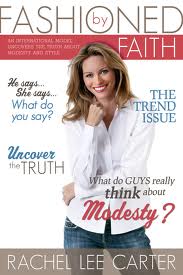 Ever wonder what Jesus had to say to writers about surviving during tough times? In reading through the Bible using The Message I came across the answer to that question in Luke 16, where Jesus told the story of the corrupt manager who was fired. Before he left his job he ingratiated himself with his boss’s customers by calling each in and reducing what they owed. Eugene Peterson’s version of Jesus’ conclusion reads: “I want you to be smart in the same way—but for what is right—using every adversity to stimulate you to creative survival, to concentrate your attention on the bare essentials, so you’ll live, really live, and not complacently just get by on good behavior.”
Ever wonder what Jesus had to say to writers about surviving during tough times? In reading through the Bible using The Message I came across the answer to that question in Luke 16, where Jesus told the story of the corrupt manager who was fired. Before he left his job he ingratiated himself with his boss’s customers by calling each in and reducing what they owed. Eugene Peterson’s version of Jesus’ conclusion reads: “I want you to be smart in the same way—but for what is right—using every adversity to stimulate you to creative survival, to concentrate your attention on the bare essentials, so you’ll live, really live, and not complacently just get by on good behavior.”
So how do we use adversity to stimulate us to “creative survival”? As I meditated on that I remembered clients who were using their God-given creative talents to create income and get out their message as writers—and others who gained book publishing contracts because of their creative approach.
At writers’ conferences I consistently promote article writing because articles reach many thousands more than books. My hostess several years ago at the HACWN Christian writers’ conference in Kansas City, Beth Hey, illustrates one approach. She loves travel, so decided to submit articles to travel publications. She’s developed some excellent connections and recently visited New England, Hawaii, and Israel on fully paid travel writing assignments, with a writing fee on top of expenses. Other writers I met have gained steady writing assignments from Focus on the Family publications, Chicken Soup for the Soul compilations, Upper Room and Guideposts devotional publications. One of the men I met set out to write a book on the Fourth Quarter, which he quickly discovered would not work for women readers unfamiliar with football or basketball. He really perked up when I suggested he’d reach a lot more readers by turning chapters into articles for men’s magazines, something he had never considered.
A Canadian pastor/writer, Murray Pura, wrote literary level fiction that failed to interest U.S. publishers. Through contacts he got it published in Canada, but he really wanted to enter the U.S. fiction market. He could have dismissed the U.S. market as too shallow and not worth considering, but decided instead to tackle an Amish romance. Though some editors still considered it too literary, it has found a home at Barbour Publishing in their Bride series.
 Several years ago at the HACWN conference I met Kristen Feola, a creative non-fiction writer who had participated in her church’s practice of the Daniel Fast and decided to write a book with 21 devotions to enrich the spiritual focus of those practicing the fast. She faced the daunting task of convincing editors who insist non-fiction editors need a national platform when writing on Christian living topics. Since her platform was only her large home church, she became creative. She developed 100 recipes suitable for those participating in the Daniel Fast, preparing each dish and photographing it in a makeshift photo studio she set up in her kitchen. Then she set out to get at least one testimony from a Daniel Fast practitioner for every devotional. When I sent out her proposal Zondervan jumped on it. The completed book, with full-color photos of completed dishes as an insert, was released in December 2010, just over a year from when she presented the proposal to me.
Several years ago at the HACWN conference I met Kristen Feola, a creative non-fiction writer who had participated in her church’s practice of the Daniel Fast and decided to write a book with 21 devotions to enrich the spiritual focus of those practicing the fast. She faced the daunting task of convincing editors who insist non-fiction editors need a national platform when writing on Christian living topics. Since her platform was only her large home church, she became creative. She developed 100 recipes suitable for those participating in the Daniel Fast, preparing each dish and photographing it in a makeshift photo studio she set up in her kitchen. Then she set out to get at least one testimony from a Daniel Fast practitioner for every devotional. When I sent out her proposal Zondervan jumped on it. The completed book, with full-color photos of completed dishes as an insert, was released in December 2010, just over a year from when she presented the proposal to me.
Now fiction is obviously a creative effort from the get-go, but how does an author without a published novel get the attention of editors? As Pepper Bashan’s agent I sent out several novel proposals without positive results. Then she embarked on an approach I have often recommended. She started entering both Christian and secular fiction writing contests—and winning. One of the secular contests she entered had the editor from a Christian publishing house as judge, who really liked Pepper’s novel. Though it was not the right length for her book club, she recommended it to her associate. Now the proposal came not only with my recommendation, but an editor at the publishing house.
 Finally, what does it take to be published by a major publishing house that focuses on much-published and already selling authors? That’s the task Rachel Carter faced when she decided to write a book on modesty. Yes, she had been an international model for 20 years and has been speaking fairly widely to both young people and women for several years, but the market already has books on purity by well-known authors. Rachel decided to creatively enhance the value of her book. First she gained permission from her modeling agencies to use photos from her modeling experiences in her book. Then she enlisted seven good-looking young men to write 300-word essays on their perspective on modesty. She wove in her own experiences turning down lucrative assignments because they would compromise her commitment to modesty. That proposal landed at the desk of the editor for Tommy Nelson, the YA and childrens’ publishing entity of Thomas Nelson. The editor loved what she saw and quickly got the support for a publishing contract. Fashioned by Faith was released in the spring of 2011 with a magazine look cover, plus full color photos from Rachel’s modeling assignments inside.
Finally, what does it take to be published by a major publishing house that focuses on much-published and already selling authors? That’s the task Rachel Carter faced when she decided to write a book on modesty. Yes, she had been an international model for 20 years and has been speaking fairly widely to both young people and women for several years, but the market already has books on purity by well-known authors. Rachel decided to creatively enhance the value of her book. First she gained permission from her modeling agencies to use photos from her modeling experiences in her book. Then she enlisted seven good-looking young men to write 300-word essays on their perspective on modesty. She wove in her own experiences turning down lucrative assignments because they would compromise her commitment to modesty. That proposal landed at the desk of the editor for Tommy Nelson, the YA and childrens’ publishing entity of Thomas Nelson. The editor loved what she saw and quickly got the support for a publishing contract. Fashioned by Faith was released in the spring of 2011 with a magazine look cover, plus full color photos from Rachel’s modeling assignments inside.
With dramatic changes in distribution patterns, layoffs of editors and marketing staff to cut budgets during the current recession, the increasing focus on celebrity authors by Christian readers, the approach to writing books that served writers well for many decades are now considered inadequate. That is totally frustrating to authors who do not have the national platform demanded by marketing departments. Jesus’ said that during a time of adversity, creativity is the key to success.


Great article, Les. Full of both information and encouragement. I loved your examples! Thank you.
I love article writing. It’s how I first published, and it’s also helped me to build a portfolio. As a result, several editors/publishers contacted me and asked if I had any novel projects they could take a look at. I didn’t at the time, but I’ve since studied the craft, wrote a novel, and recently started submitting. We’ll see what happens.
Great post.